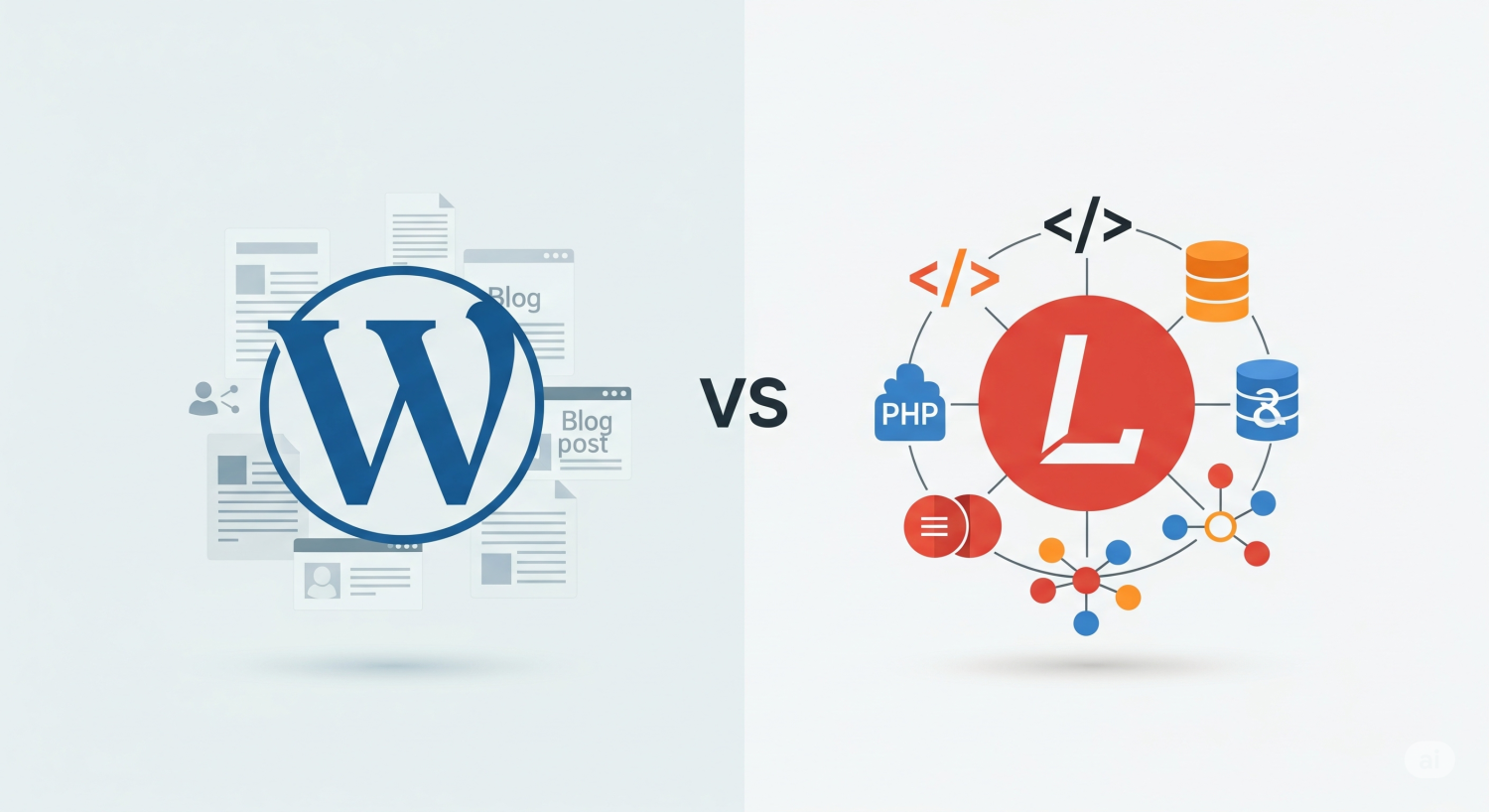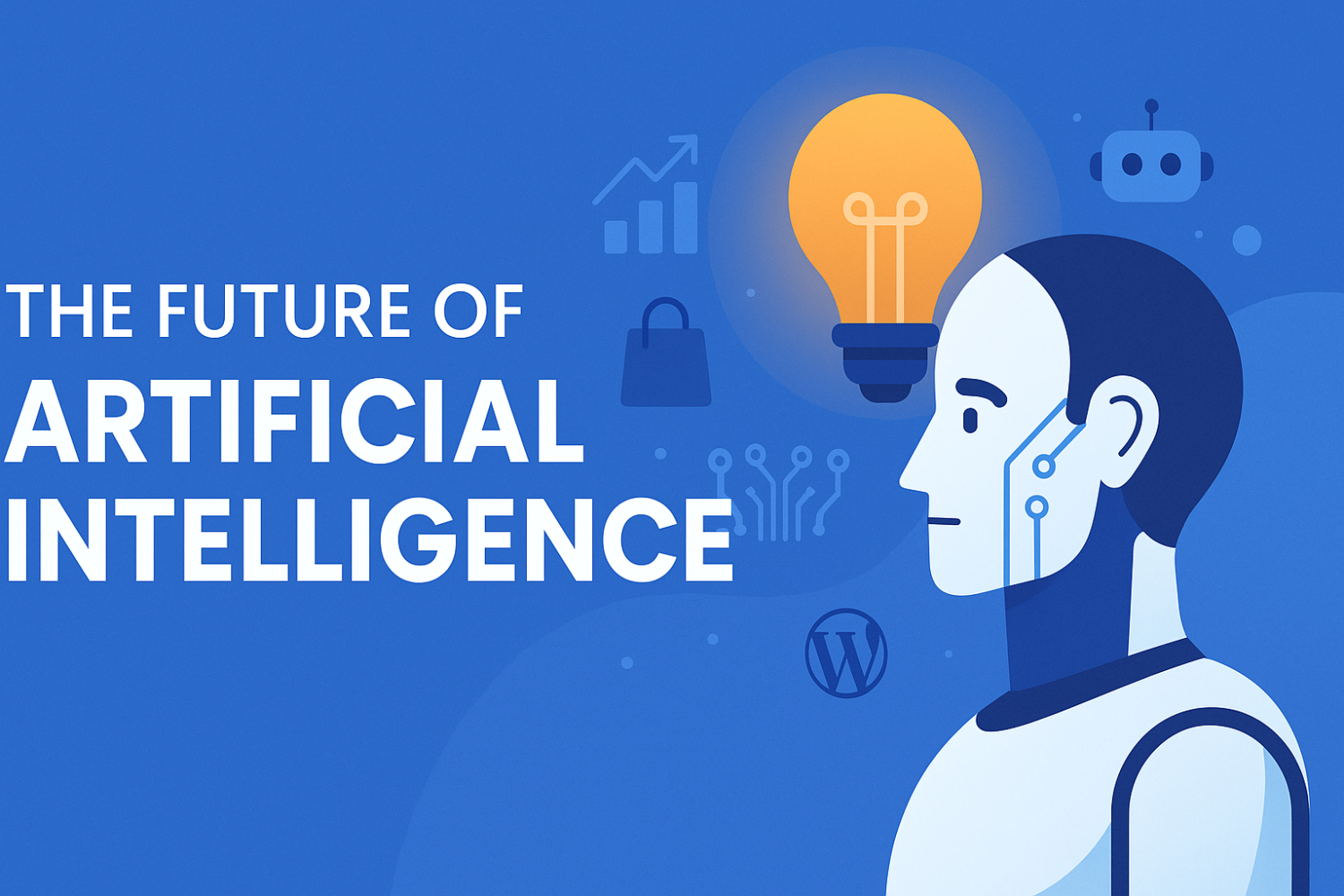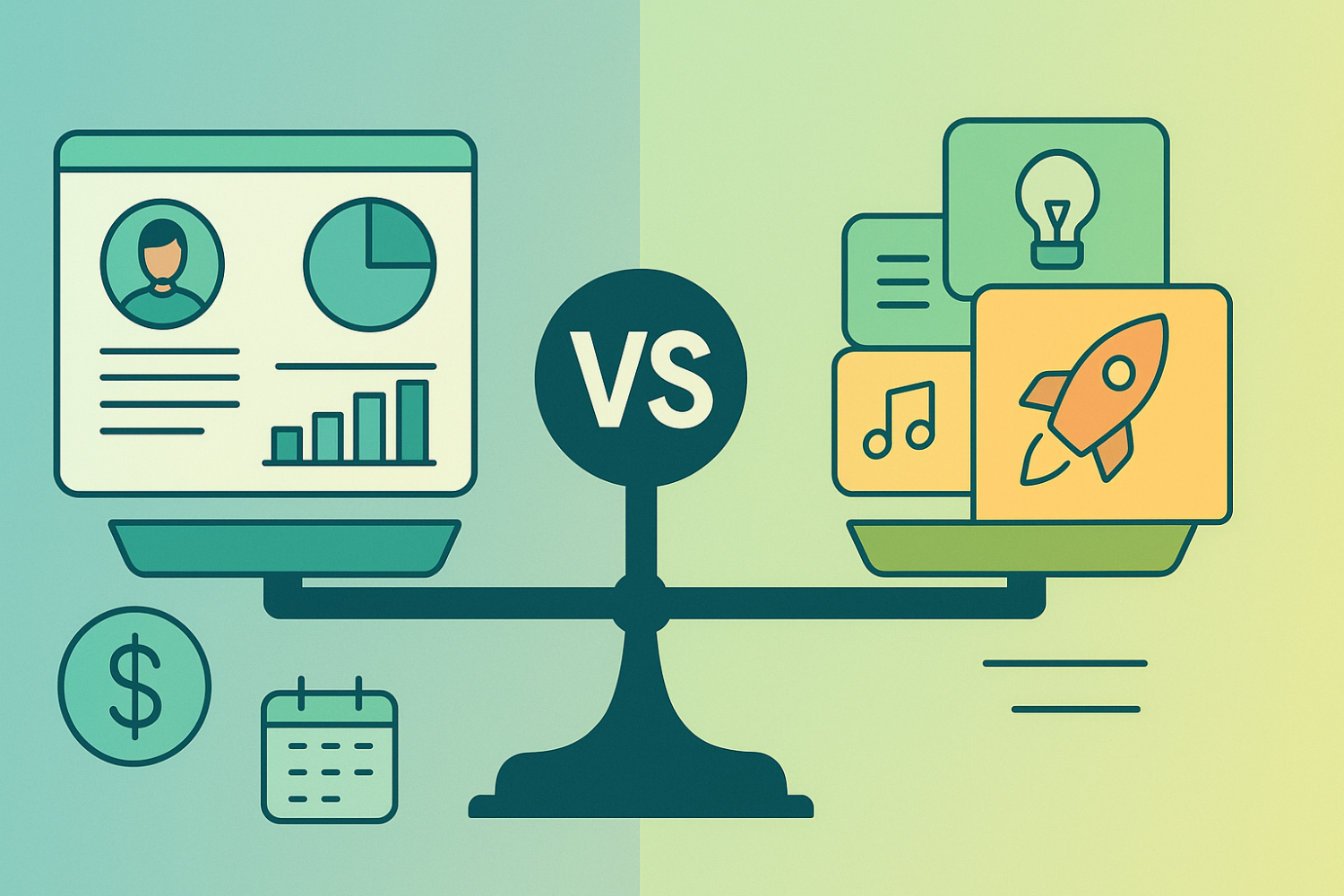WordPress vs Laravel: Choosing the Right Development Tool for Your Project

Introduction to WordPress and Laravel
In the realm of web development, choosing the right tools is crucial for the success of any project. Two of the most popular options available today are WordPress and Laravel. These platforms cater to different needs within the large spectrum of website building, each offering unique features and functionalities that distinguish them from one another.
WordPress is primarily recognized as a content management system (CMS) that allows users to efficiently create and manage websites, particularly those focused on blogging. Launched in 2003, it has evolved into one of the most widely-used website building tools due to its user-friendly interface, customizable themes, and a plethora of plugins that add diverse functionalities. This makes WordPress particularly appealing for individuals and businesses looking for a straightforward solution to manage their online presence without requiring extensive programming knowledge.
On the other hand, Laravel serves as a powerful PHP framework designed for building robust and scalable web applications. Launched in 2011, Laravel has gained popularity among developers due to its elegant syntax, built-in tools for routing, authentication, and caching, as well as its comprehensive ORM (Object-Relational Mapping) capabilities that simplify database interactions. This framework is tailored for those who seek to develop complex applications or systems requiring custom back-end functionalities, thus appealing to developers with a deep understanding of web development principles.
While WordPress excels in content management functions, Laravel provides the necessary tools for intricate web applications. Understanding these differences is essential when deciding which platform to use for your project, as each has its own strengths and limitations that cater to various requirements in the web development landscape.
Key Features of WordPress and Laravel
When considering tools for web development, both WordPress and Laravel present distinctive features that suit various project requirements. WordPress, primarily recognized as a content management system (CMS), boasts a user-friendly interface that simplifies website building for users, regardless of their technical expertise. This accessibility makes it an excellent choice for individuals and businesses looking to establish their online presence with minimal friction.
One of WordPress's standout features is its extensive plugin ecosystem, which allows developers to easily extend the platform's functionality. This vast array of plugins means that users can integrate numerous features, from SEO optimization to e-commerce solutions, without having to write extensive code. Additionally, the plethora of available themes enables website builders to customize the aesthetic and functional aspects of their sites, ensuring that they align with specific branding requirements.
On the other hand, Laravel serves as a robust PHP framework that targets developers seeking to create web applications with sophisticated features. Its elegant syntax enhances the developer's productivity, encouraging clean and maintainable code. Laravel comes equipped with several built-in tools that cater to common web development needs, such as authentication and routing. This means that developers can implement security measures and manage user access effortlessly. Furthermore, Laravel's Eloquent ORM streamlines database management, making it simpler to interact with complex data structures. This capability can be particularly beneficial for applications requiring intricate data handling.
Ultimately, the choice between WordPress and Laravel hinges on the specific needs of the project. WordPress excels in content-driven websites, providing ease of use and an expansive feature set through plugins and themes. In contrast, Laravel offers a powerful framework suited for developers who prioritize customization, scalability, and advanced functionalities in web application development.
Comparative Analysis: WordPress vs Laravel
When it comes to web development, the choice of the right platform can significantly influence the project's success. Both WordPress and Laravel serve distinct purposes in the realm of website building; therefore, a comparative analysis of their strengths and weaknesses is essential.
Starting with WordPress, it is widely regarded as an accessible content management system (CMS) that allows users to create and manage websites with ease. Its user-friendly interface is ideal for those who may not have extensive programming knowledge. The plethora of themes and plugins available enhances customization, enabling quick setup and deployment of websites. This makes WordPress an attractive choice for bloggers and small businesses looking for a straightforward solution. However, this simplicity can come at the cost of performance and scalability, particularly for larger, more complex projects that necessitate enhanced functionality and speed.
In contrast, Laravel is a robust PHP framework designed for developers who need advanced features and greater control over their applications. It excels in building custom web applications, allowing for intricate routing, database management, and security features that are not readily available in WordPress. Laravel’s flexibility affords developers the freedom to scale as needed, catering to projects that require significant customization. Nevertheless, this complexity can deter those without a programming background, making Laravel less accessible to novice users.
When analyzing security, Laravel generally offers a superior defense mechanism, incorporating features such as built-in protection against SQL injection and cross-site scripting, which are often concerns for websites built on WordPress. However, security in WordPress can be enhanced through proper plugins and regular updates, though it still requires diligent management from users. Ultimately, the decision between WordPress and Laravel hinges on specific project requirements—including ease of use, customization, performance, and security—allowing developers and businesses to choose the platform best suited for their needs.
Which Tool is Right for Your Project?
When considering the choice between WordPress and Laravel for your web development project, it is essential to evaluate the project requirements, your technical skills, and the resources available to you. Each tool serves distinct purposes, catering to a diverse range of user needs, thus leading to different outcomes based on your choices.
For those looking to create a small business website or a personal blog, WordPress is often the ideal solution. As a powerful content management system (CMS), it allows users to quickly set up a site with minimal technical knowledge. With its extensive library of plugins and themes, website building becomes streamlined, enabling customization without having to delve deeply into the code. This makes WordPress particularly attractive for beginners or those with limited resources seeking to establish an online presence rapidly.
Conversely, Laravel shines in the realm of large-scale applications requiring a custom framework. If your project demands advanced functionality or specific features that go beyond the standard offerings of a CMS, Laravel provides the flexibility and scalability needed. It caters to developers with a higher level of technical expertise, enabling them to create robust applications tailored precisely to the demands of users. Laravel's built-in security features, routing, and database management capabilities make it suitable for projects that require specialized solutions and long-term maintenance.
In summary, the decision between WordPress and Laravel should be guided by the nature of your project. A small business website or personal blog may align perfectly with WordPress's user-friendly interface and quick setup capabilities. Meanwhile, for developers aiming to build sophisticated applications demanding custom functionality and a higher degree of control, Laravel presents an optimal choice. Ultimately, identifying your technical skills, project goals, and resource availability will aid in making an informed decision that aligns with your development aspirations.










